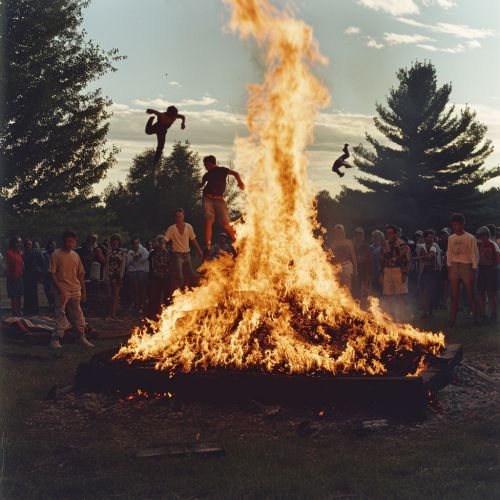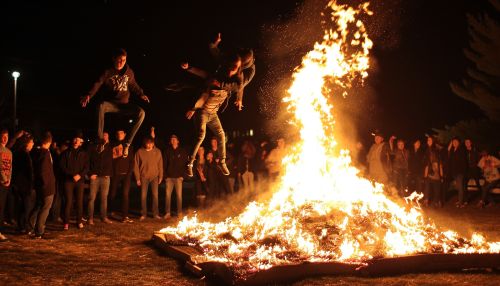Kupala Night
Origins and History
Kupala Night, also known as Ivan Kupala Day, is a traditional Slavic holiday celebrated in Eastern Europe. The holiday is named after the ancient Slavic god Kupala, who was associated with summer, fertility, and purification. The holiday is typically celebrated on the night of the summer solstice, which usually falls on June 24th according to the Gregorian calendar.


The origins of Kupala Night can be traced back to pagan times, before the introduction of Christianity in Eastern Europe. The holiday was originally a fertility festival that celebrated the power of the sun and the abundance of the summer season. It was believed that on this night, the forces of nature were at their most powerful, and that the boundary between the physical and spiritual worlds was at its thinnest.
Rituals and Traditions
There are many rituals and traditions associated with Kupala Night, many of which have their roots in ancient pagan practices. One of the most well-known traditions is the lighting of bonfires. It was believed that the fire had purifying properties, and people would jump over the flames to cleanse themselves of their sins and to bring good luck for the coming year. This ritual is still practiced today in many parts of Eastern Europe.
Another common tradition is the making and wearing of wreaths made from herbs and flowers. These wreaths, known as veniki, were believed to have magical properties and were often used in divination rituals. In some regions, young women would throw their veniki into a river or lake, and the direction in which the wreath floated was believed to predict the woman's future.
Modern Celebrations
Today, Kupala Night is still widely celebrated in many parts of Eastern Europe, including Ukraine, Belarus, Poland, and Russia. The holiday has undergone some changes due to the influence of Christianity, and in many regions, it is now associated with the feast of St. John the Baptist, which is celebrated on the same day.
Despite these changes, many of the traditional rituals and customs are still practiced. Bonfires are still lit, and people still jump over the flames. Wreaths are still made and used in divination rituals, and in some regions, people still bathe in rivers and lakes on Kupala Night, believing that the water has healing properties.
In addition to these traditional practices, many modern celebrations of Kupala Night also include concerts, fireworks, and other forms of entertainment. The holiday is often seen as a time for communities to come together and celebrate the arrival of summer.
